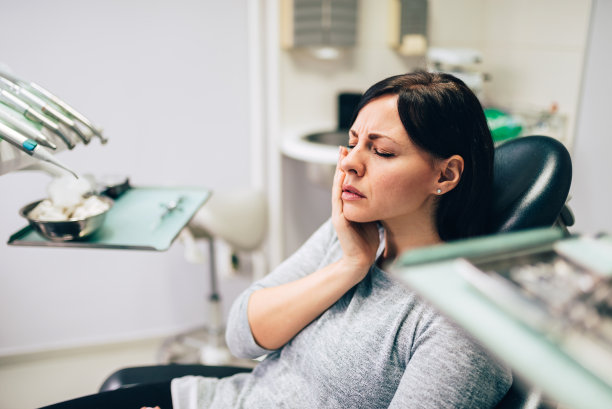The Importance of Proper Care and Recovery After Extracting a Tooth for Optimal Oral Health
Summary: After a tooth extraction, proper care and recovery are crucial to ensure optimal oral health and prevent complications such as infection, prolonged pain, and unnecessary discomfort. This article explores the importance of post-extraction care, focusing on four key aspects: managing pain and discomfort, maintaining oral hygiene, following dietary recommendations, and recognizing potential complications. Each section emphasizes practical tips and guidelines to aid in a smooth recovery process. By adhering to these guidelines, patients can protect their oral health and promote healing, making the recovery period efficient and less stressful.
1. Managing Pain and Discomfort Effectively

After a tooth extraction, its common to experience varying levels of pain and discomfort. The extent of pain often depends on the complexity of the extraction. To manage pain effectively, over-the-counter pain relief medication can be utilized. Medications like ibuprofen or acetaminophen can alleviate discomfort and reduce inflammation. Always follow the dosage instructions provided by healthcare professionals.
In addition to medications, applying a cold compress to the outside of the cheek may help minimize swelling and numb the area, providing relief from pain. Its recommended to apply the compress for about 15-20 minutes at a time during the first few hours post-surgery to get the best results.
Patients should also adhere to prescribed rest and limit physical activities in the first days following the extraction. Resting allows the body to focus on healing, thus reducing discomfort levels and speeding up recovery.
2. Maintaining Oral Hygiene After Extraction
Maintaining oral hygiene is vital to prevent infections after a tooth extraction. While it might be tempting to skip brushing due to pain or tenderness, it is crucial to maintain a clean mouth. However, gentle techniques should be employed to avoid disturbing the extraction site.
Using a soft-bristled toothbrush is advisable for the days following the operation. Patients should brush their teeth gently, avoiding the area of the extraction directly. After 24 hours, rinsing with a mild saline solution can also aid in keeping the area clean and assist in healing.
Additionally, patients may want to avoid using mouthwashes containing alcohol, as these can irritate the extraction site and potentially delay healing. Gentle care during the recovery phase is essential for optimal oral hygiene and overall recovery.
3. Following Dietary Recommendations for Recovery
The first few days after tooth extraction require careful attention to dietary choices. Soft foods that are easy to chew and swallow should be prioritized. Foods like yogurt, mashed potatoes, and applesauce are excellent options that provide nutrition without requiring excessive chewing.
Its vital to stay hydrated, but patients should avoid using straws as the suction can disturb the blood clot that forms in the extraction site, leading to complications such as dry socket. Instead, drinking water directly from a glass is best during the recovery period.
Additionally, patients should steer clear of spicy or hot foods, as these can irritate the extraction site. Listening to the bodys cues and maintaining a gentle diet will enhance healing and comfort during recovery.
4. Recognizing and Addressing Potential Complications
While most recoveries after tooth extractions proceed smoothly, it is important for patients to be aware of potential complications. Some common issues include dry socket, infection, or excessive bleeding. Recognizing symptoms early can help prevent further complications.
Signs of dry socket may include severe pain a few days after the extraction, which may radiate to the ear or eye. If patients notice these symptoms, prompt consultation with a dental professional is essential for treatment.
Symptoms of infection can include fever, chills, and an unusual discharge from the extraction site. If any of these symptoms occur, seeking medical attention immediately is crucial to address the issue effectively, ensuring optimal recovery.
Summary:
In conclusion, proper care and recovery after tooth extraction are paramount for maintaining optimal oral health. By effectively managing pain, maintaining hygiene, adhering to dietary recommendations, and recognizing complications, individuals can significantly enhance their recovery experience. Following these guidelines will lead to a smoother healing process, preventing discomfort and fostering better oral health in the long run.
This article is compiled by Vickong Dental and the content is for reference only.


